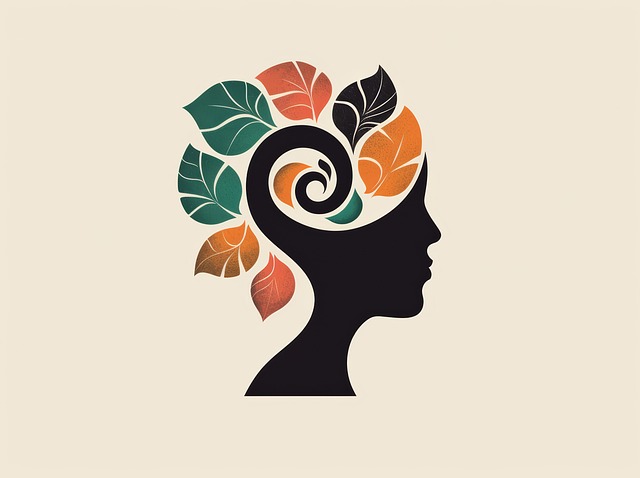Identifying emotional triggers is a crucial first step towards developing mental resilience strategies. By enhancing self-awareness of situations, people, or thoughts that evoke strong emotions, individuals can recognize patterns and regain control over their reactions. This awareness promotes proactive management of emotional well-being through techniques like deep breathing exercises. Mindfulness practices and journaling are also effective strategies for cultivating present-moment awareness, reducing anxious thoughts, and fostering self-reflection, all contributing to building mental resilience and navigating challenges more effectively.
Emotional and mental health are paramount in today’s fast-paced world, where stress triggers can lurk around every corner. Building mental resilience is essential for navigating life’s challenges, and adopting supportive practices can strengthen your emotional well-being significantly. This article explores effective mental resilience strategies, delving into identifying and managing emotional triggers, cultivating positive self-talk, establishing healthy routines, and fostering meaningful connections that nurture your overall mental health.
- Identifying Emotional Triggers and Building Awareness
- – Recognizing stress triggers and emotional patterns
- – Mindfulness practices for present-moment awareness
- – Journaling as a tool for reflection and self-exploration
Identifying Emotional Triggers and Building Awareness

Identifying emotional triggers is a powerful first step in developing mental resilience strategies. By becoming more aware of situations, people, or thoughts that set off strong emotions, individuals can start to recognize patterns and gain control over their reactions. This awareness allows for a crucial shift—from being reactive to becoming proactive in managing one’s emotional well-being. With this knowledge, people can begin to navigate triggers with greater ease, implementing strategies like deep breathing exercises or taking a moment to center themselves before responding.
Building this emotional awareness fosters a deeper understanding of oneself and one’s reactions, enabling individuals to strengthen their mental health. It’s about recognizing that emotions are a normal part of life but that we have the power to choose how we respond to them. Through this process, people can learn to navigate challenges with enhanced equanimity, fostering a more resilient mindset.
– Recognizing stress triggers and emotional patterns

Recognizing stress triggers and emotional patterns is a crucial step in developing mental resilience strategies. By understanding what sets off your stress response, whether it’s certain people, situations, or thoughts, you can begin to anticipate and manage these triggers effectively. This awareness allows for proactive measures to be taken, such as practicing mindfulness techniques, engaging in regular physical activity, or seeking social support when needed.
Identifying recurring emotional patterns also enables individuals to cultivate healthier coping mechanisms. For example, if you notice a tendency to ruminate on negative thoughts, cognitive-behavioral techniques can help redirect your mind towards more positive and realistic perspectives. Incorporating these practices into daily life fosters mental resilience, enabling individuals to navigate challenging situations with greater ease and maintain a sense of emotional well-being.
– Mindfulness practices for present-moment awareness

Mindfulness practices are powerful tools for cultivating present-moment awareness, a key component in strengthening emotional and mental health. By focusing on the here and now, individuals can reduce the grip of anxious thoughts and depressive feelings. This simple yet profound shift allows for a deeper connection with one’s inner self and surroundings, fostering a sense of calm and clarity. Incorporating mindfulness into daily routines—such as mindful breathing exercises or guided meditations—can serve as effective mental resilience strategies, helping to navigate life’s challenges with greater ease.
These practices encourage individuals to observe their thoughts and emotions without judgment, enabling them to develop a healthier relationship with their mental states. Over time, regular mindfulness engagement can enhance one’s overall well-being, making it an invaluable addition to any supportive framework designed to strengthen emotional and mental health.
– Journaling as a tool for reflection and self-exploration

Journaling is a powerful practice that offers a safe space for individuals to engage in reflection and self-exploration, serving as an effective mental resilience strategy. By documenting thoughts, emotions, and experiences, one can gain valuable insights into their mindset and develop a deeper understanding of themselves. This introspective process allows individuals to identify patterns, process complex feelings, and foster personal growth.
Through regular journaling, people can learn to recognize triggers for stress or anxiety, enabling them to develop healthier coping mechanisms. It encourages self-awareness, enhances emotional intelligence, and promotes better mental health management. By putting pen to paper, so to speak, individuals can clarify their thoughts, challenge negative perspectives, and cultivate a more positive outlook—all vital components of building mental resilience.
By incorporating identifying emotional triggers, mindfulness practices, and journaling into your routine, you can cultivate mental resilience strategies that support emotional and mental health. These simple yet powerful tools enable better understanding of ourselves and our reactions, fostering a deeper sense of awareness and control. Start today and witness the positive impact on your overall well-being.
